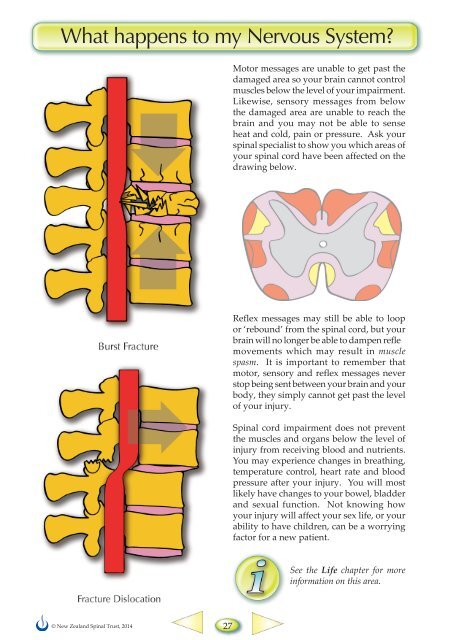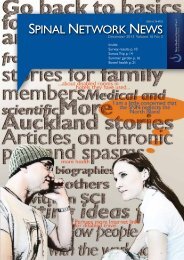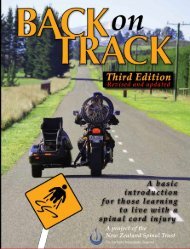o_19m515s4j1asl13rsiok91e166nh.pdf
You also want an ePaper? Increase the reach of your titles
YUMPU automatically turns print PDFs into web optimized ePapers that Google loves.
What happens to my Nervous System?<br />
Motor messages are unable to get past the<br />
damaged area so your brain cannot control<br />
muscles below the level of your impairment.<br />
Likewise, sensory messages from below<br />
the damaged area are unable to reach the<br />
brain and you may not be able to sense<br />
heat and cold, pain or pressure. Ask your<br />
spinal specialist to show you which areas of<br />
your spinal cord have been affected on the<br />
drawing below.<br />
Reflex messages may still be able to loop<br />
or ‘rebound’ from the spinal cord, but your<br />
brain will no longer be able to dampen refle<br />
movements which may result in muscle<br />
spasm. It is important to remember that<br />
motor, sensory and reflex messages never<br />
stop being sent between your brain and your<br />
body, they simply cannot get past the level<br />
of your injury.<br />
Spinal cord impairment does not prevent<br />
the muscles and organs below the level of<br />
injury from receiving blood and nutrients.<br />
You may experience changes in breathing,<br />
temperature control, heart rate and blood<br />
pressure after your injury. You will most<br />
likely have changes to your bowel, bladder<br />
and sexual function. Not knowing how<br />
your injury will affect your sex life, or your<br />
ability to have children, can be a worrying<br />
factor for a new patient.<br />
See the Life chapter for more<br />
information on this area.<br />
© New Zealand Spinal Trust, 2014<br />
27
















